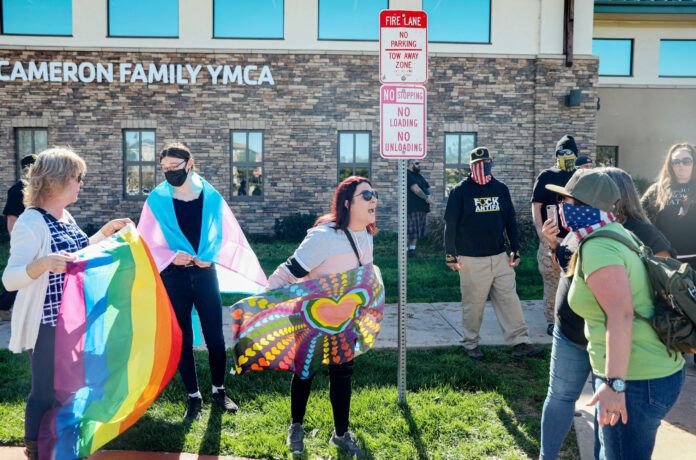Two conservative states have the current highest rates of “Am I Trans?” Google searches as the national conversation about transgender rights and gender dysphoria continues to escalate.
Transgenderism has impacted major businesses and state legislatures, where, according to the Trans Legislation Tracker, 549 anti-trans bills have been introduced in 49 states. Of those, 73 have passed, 103 have failed and 373 remain active.
Businesses have become centers of ridicule by conservative segments of the population amid social media-driven boycotts, most recently Target for advertising, then pulling LGBTQ+ merchandise because of reported threats against staff members. Bud Light’s partnership with transgender activist Dylan Mulvaney prompted a slew of initial backlash that has led to finger pointing toward other companies.
Yet according to the Cultural Currents Institute, which studies trends in public opinion, the highest online searches for individuals questioning their identities is occurring in the conservative-minded states of Utah and Kentucky, based on data accumulated on May 22 and 23. They are followed by the liberal-minded states of Colorado, Michigan and Washington.
SANDY HUFFAKER/AFP via Getty Images
Google Trends data was collected for all 50 U.S. states and the District of Columbia from January 2004 to May of this year. It is based on a proprietary 100-point scoring system that represents the search terms’ normalized volume proportional to all other searches in the region or compared time.
For the phrase “Am I trans?” Utah’s point system came in at 100, with Kentucky following at 97. Colorado is at 71, Michigan 70 and Washington state 66.
Alithia Zamantakis, a postdoctoral fellow at Northwestern University, told Newsweek that the searches show that what might be occurring in conservative-led legislatures could be contrary to what individuals may be experiencing in their own lives—and the more discussion around such issues, the more that individuals want to find out their true identities.
“I think part of what we might be seeing there is that more things are discussed, it’s possible for children to be hearing the words that represent who they are,” she said. “And so people might be Googling these words to understand what they mean, ‘Am I this, am I not?’
“Because the reality is in most parts of the country, but even more so hyper-conservative parts, people aren’t taught really what it means to be gay or lesbian or trans. They have to learn from media or from the internet or so forth. And so people are seeking answers.”
The internet has long been a place for individuals across the LGBTQ spectrum to find a sense of community, she added.
The Utah legislature has introduced 10 anti-trans bills since January 1, in areas including education, health care and athletics. Four of the 10 bills were passed, including birth certificate modifications, school gender identity policies and provisions regarding transgender medical treatments and procedures.
Republican Utah Governor Spencer Cox was criticized by organizations like the Human Rights Campaign for signing the transgender medical treatment bill into law. He was accused of “directly placing the LGBTQ+ youth he previously claimed to want to protect in harm’s way.”
Newsweek reached out to Cox’s office via email for comment.
Two of 13 anti-trans bills have passed in Kentucky, which is led by Democratic Governor Andy Beshear. The passed legislation included one regarding education, such as requiring specific parental notifications from public schools and requiring school districts to adopt specific procedures related to parental rights; and the other was related to interscholastic athletics.
Beshear vetoed GOP legislation in March that would have regulated the lives of transgender youths, includes banning access to gender-affirming health care, restricting the bathrooms they use, and banning conversation in schools regarding sexual orientation and gender identity, according to the Associated Press.
Newsweek reached out to Beshear’s office via email for comment.
“What these legislators really write is to repress LGBT folks and to also create further divisions and in reality, what they’re really doing is creating the basis for people to fight back for people to come together,” Zamantakis said.
“I think part of that, around the rise in these things being globally discussed at greater length, is also that we have a very rigid understanding of what it means to be gay or lesbian or trans. And that’s even more so in hyper-conservative states.”


